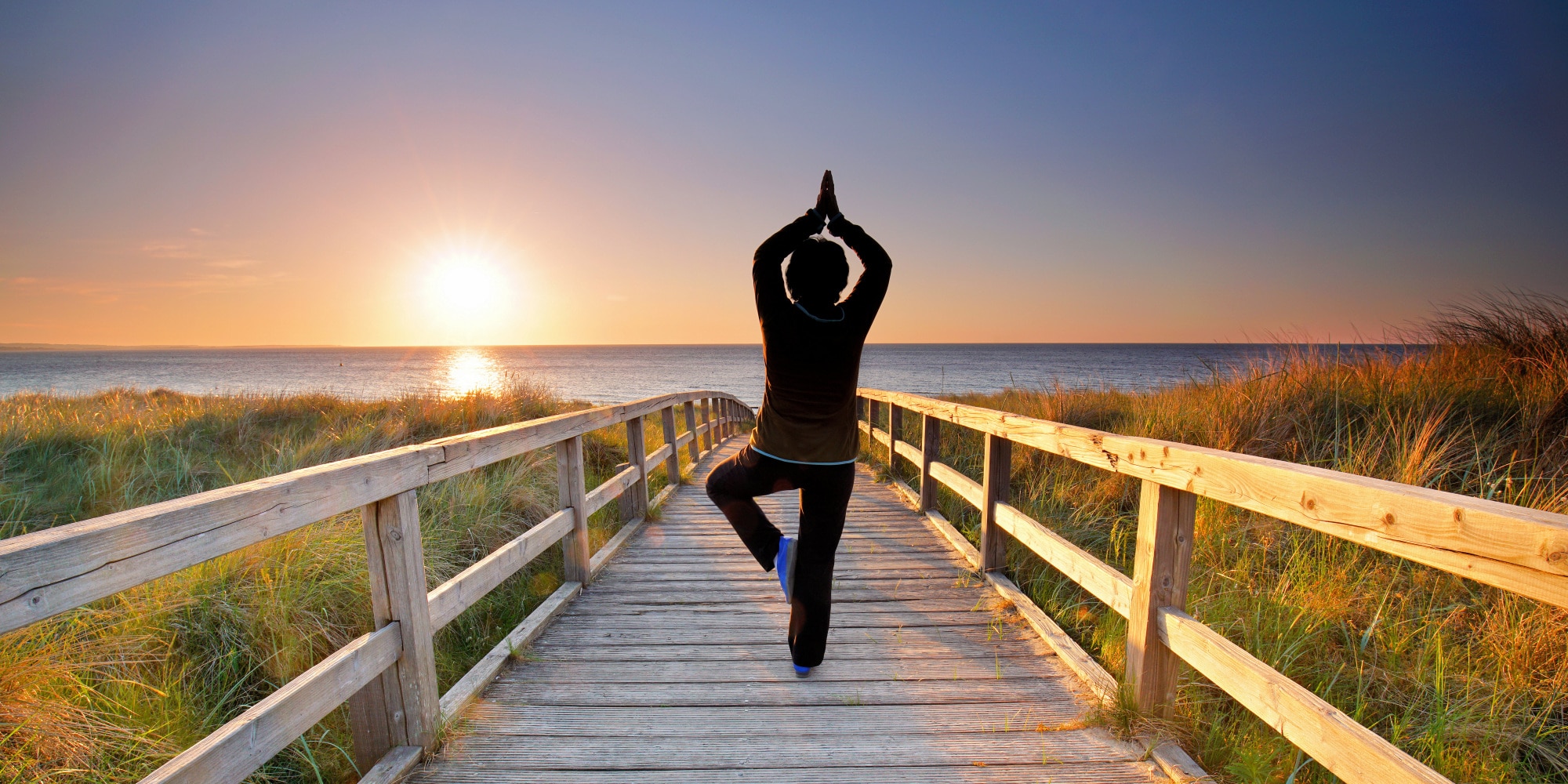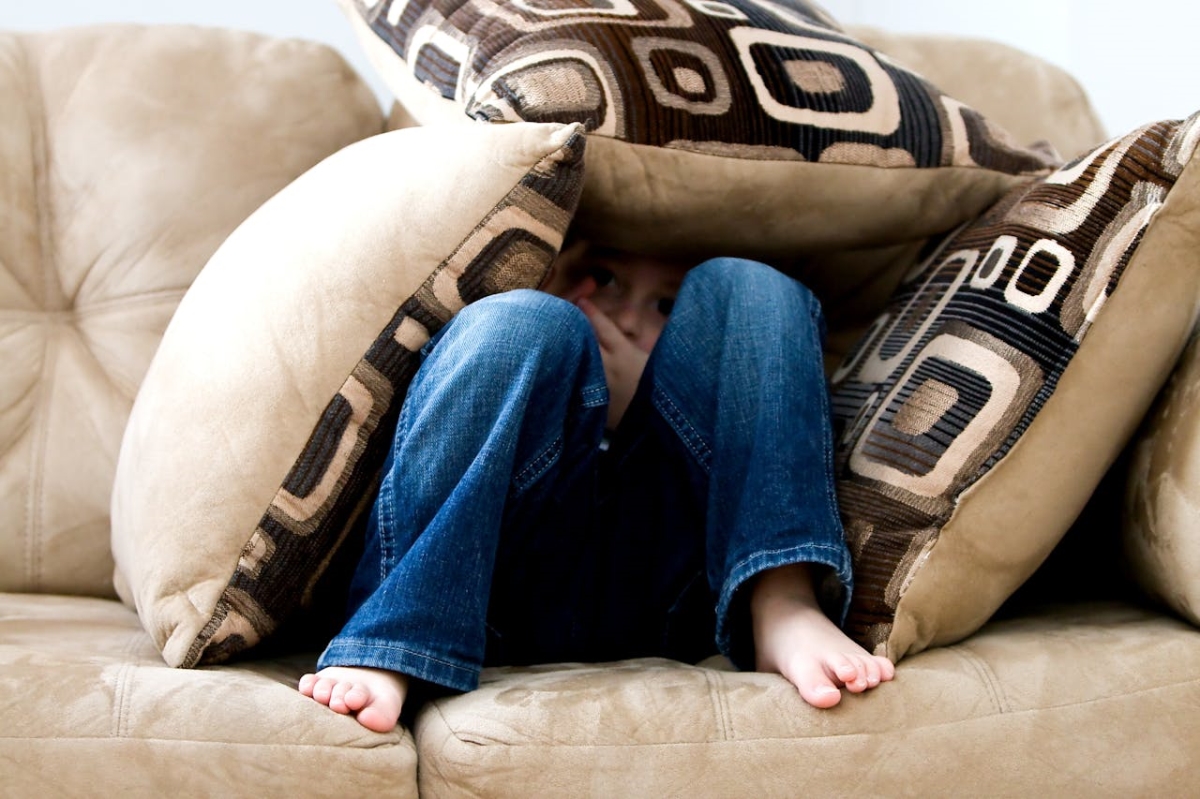Especially since fear is so prevalent, it may be wise to ask why do people feel fear. I’m sure we can find a lot of information along these lines, but does it make sense to us in a way where we can use this information to break free?
Maybe yes, maybe no. Let’s explore this subject a bit and see what we can discover that will increase our understanding as well as inspire us to take steps to resolve this issue in the areas of our lives that it most affects.
Why Do People Feel Fear Instead of Inspired?
“Fear keeps us focused on the past or worried about the future. If we can acknowledge our fear, we can realize that right now we are okay. Right now, today, we are still alive, and our bodies are working marvelously. Our eyes can still see the beautiful sky. Our ears can still hear the voices of our loved ones.”
Fear does not exist in the present moment. Only when we are caught up with the noise in our heads and paying attention to the noise outside do we experience fear.
When we learn to trust the part of ourselves that exists in the present moment we will gladly let go of all fear. Instead of thinking that it protects us, we will see that there is nothing to fear.
Now of course there is the normal fear that arises when we are threatened in some way, and then our survival response kicks in. But here we are talking about needless psychological fears; these we are happy to let go. They are unnecessary baggage that inhibits our progress.
One of the major reasons fear kicks in when we contemplate a change of any kind is that we are afraid things will get worse. At least we have settled into where we are and it is familiar.
We are not thriving but at least we are surviving.
Also, we have fear of what other people will think of us when we step outside our normal routines. Again, this is a mind game but very real to us.
This is why it is essential to surround ourselves with loving and supportive folks. Eliminating negativity from our lives makes letting go of the illusion of fear much easier.
We perceive things to be a certain way regardless if they are true or not. These perceptions then dictate our behavior and overall results in life. We create our circumstances even when it seems we don’t.
Beyond Survival
“Even death is not to be feared by one who has lived wisely.”
As a survival mechanism, fear does well to alert us to potential danger. This instinctual response has been hardwired into our brains for many years.
The thing is that this fear response is not meant to kick in when we are not in danger of any kind. We have been conditioned to fear things that only exist within our perception. In other words, we are making this stuff up and thinking it is real.
We want things to improve but we don’t want to let go of our misperceptions. Instead, we desire a bandaid for the symptom rather than eliminating the cause of the problem.
On the other hand, inspiration allows us to see much more clearly so that we make choices and decisions based on what is really going on. This is a higher-level cognitive function that we tap into when we are relaxed and let go of focusing on the noise in our heads.
We envision possibilities and are motivated naturally to proceed. Any apprehension or fear of the unknown is just seen as part of the process of making constructive changes in our lives.
When we feel threatened and not safe, we immediately go into fear mode as we are more concerned about survival at this point than being creative and inspired.
We need to practice being calm in non-threatening situations and learn to perceive things accurately. We can then make better choices and respond effectively rather than reacting when challenges come our way.
Our current paradigm or conditioning is based on our past experiences. It’s critical to do some housecleaning by becoming consciously aware of our beliefs about ourselves, other people, and the world in general.
Take some time to reflect on this and write down what comes up. If it is a belief that does not serve our best interests. we need to understand how this belief is influencing our choices, actions, and results. We can then decide to change it into a more empowering reflection of who we are and of what we are capable.
Let’s explore beyond survival and discover our true joy and happiness.
Why Do People Feel Fear? — A Programmed Response
“I have learned over the years that when one’s mind is made up, this diminishes fear; knowing what must be done does away with fear.”
Since we are programmed to fear based on past experiences, it’s important to gain some clarity so that we can progress confidently. Also, when we are committed to a project, and our desire is heartfelt, we are much more likely to act despite our feelings and fears.
Lack of clarity breeds confusion and then it is easy to enter a fearful state. Since fear is programmed into our brains as a survival mechanism, it is important to distinguish between real and only perceived threats.
The part of our brain that processes emotions is the amygdala and it is this that triggers the fear response. This includes physical reactions such as increased heart rate and a heightened sense of awareness.
This puts us in the fight or flight mode. The intensity of the fear differs between individuals based on past experiences, genetics, and learned behaviors.
All in all fear as a survival mechanism is good when responding to an actual threat, but any type of irrational fear only inhibits our happiness and progress in life.
Why Do People Feel Fear? — Time to Let It Go
“The whole world steps aside for the man who knows where he is going.”
— Unknown —
We reviewed a bit of why people do feel fear, but more importantly to gain the clarity of what we truly desire so that we can distinguish between illusion and reality. Fear is our friend when it alerts us to actual threats, while it is our nemesis when it reacts to a perceived danger that does not exist.
It’s time to clean the house and use any fear that manifests as a tool to identify these false indicators so they can be eliminated and replaced by the truth. We can then live authentically as we were meant to be.
With just a little bit of clarity, this is possible. We are so programmed to fear change that we would rather stay stuck than risk positive change.
At that point, the only thing that certainty gives us is a false sense of security and more of the same. We are certain not to attain the results we desire.
Let’s break free from this illusion and spend a bit of time reflecting on how to attain what we most desire and deserve. Constructive change is made within the present moment where our true security lies.
Each day is a wonderful adventure with the potential to expand and grow. Let’s enjoy this journey and make a positive difference in our world.
In Peace & Love,
Joseph William





Fear is a complex emotion that often grips us without warning, dictating our actions and clouding our judgment. Your insightful exploration of this topic sheds light on the intricate workings of our minds and how fear, though originally a survival mechanism, can become a hindrance to our growth and happiness.
I resonate deeply with the notion that fear exists largely in our perceptions, woven into the fabric of our past experiences and conditioning. It’s intriguing how our minds conjure up scenarios that may never come to pass, trapping us in a cycle of apprehension and stagnation.
Thank you for this thought-provoking exploration into the depths of human psychology and the power we hold to transcend our fears.
Thanks so much for your insights, Jason. Much appreciated.
Hi Joseph,
I have this fear that if I don’t challenge myself as much as possible, both in the workplace and in my personal life, then I’m not learning anymore.
I hate the feeling of being bored in life, so the best way is to get out of my comfort zone as much as I can.
For example, when I worked in Scotland, I was there for three and half years and I must admit the job I was doing did get boring in the end because I wasn’t challenging myself enough.
So since then, I have vowed to try not to let myself get bored and just drift around in life. I have vowed to challenge myself.
But, should it be a fear, or should it be a desire to learn? It is a very fine line isn’t it, and after reading your article I am going to do my best to change this fear.
Thank you for such an inspirational article my friend, keep up the amazing work.
All the best,
Tom
Hi Tom. I understand as I often feel that no matter how much I get done it is never enough. Having an entrepreneurial spirit has its advantages but much be tempered with the understanding that enough is enough and that we are just as valuable to ourselves and others no matter how much we do. Instead of being fear driven it is more desirable to be inspiration driven and enjoy the entire journey including some quiet time as well. Best, Joseph
In my opinion, fear is useful for evolutionary reasons, to run away from dangerous animals or from the enemy, but this was mostly in the past. Although people of course still experience fear in wars and such, nowadays this is more in a social context. Like myself, I am afraid of speaking in public, but I have been like that since a teenager and I’m not sure if this will still improve,but there is always hope. Thanks for the insights!
Thanks, Lizzy. Your comments and thoughts are much appreciated. Even our greatest fears can be conquered with patience and taking things one small step at a time toward our desired direction. All the very Best. Joseph
Fascinating read! Your exploration into the reasons behind why people feel fear resonates deeply with me. It
Thank you, Angie. I appreciate your comment.